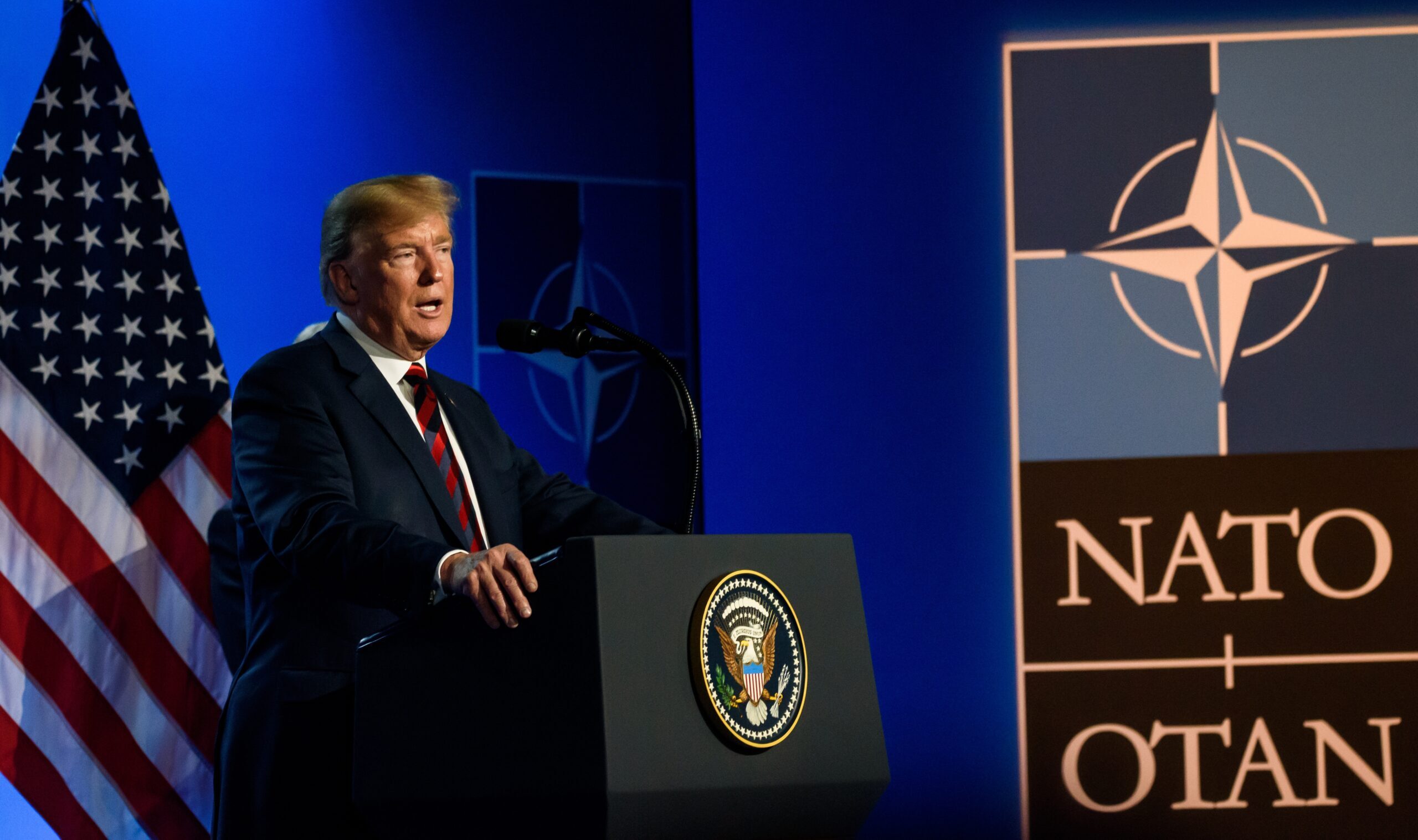How to Sell Peace
Realists and restrainers must demonstrate not that wars or future wars are wrong, but that they are impolitic.

In the late Soviet president’s memoirs, Andrei Gromyko says that Richard Nixon was a productive diplomatic partner because the man from Yorba Linda stuck to highly concrete particulars: “I cannot remember an occasion when he launched into a digression on the differing social structures of our states. He always presented himself as a pragmatist uninterested in the theoretical aspects of an issue, a man who preferred to keep discussions on a purely practical level.”
The man from Queens, our own Donald Trump, has similar instincts; that’s all to the good. Politics is not the realm of geometry. Universals—we won’t negotiate with terrorists, we’ll back whomever for however long as it takes, autocracies versus democracies, and so on—tend not only to make for unsound policy, but retrospectively to be embarrassing and politically damaging.
Anyone might be forgiven for wishing Trump had just a touch more ideology, though. The realist and restrainer foreign policy camp has always overstated the degree to which Trump shares their priors; this has been well proven by interventions in Syria, Iran, Yemen, and elsewhere. They’re not alone in this: Social conservatives, fiscal conservatives, and various breeds of libertarian have all been disappointed to varying degrees by Trump’s moderate-at-best attitudes about abortion, sexuality, policing, and deficit spending.
Trump is, however, a politician and an opportunist; if the Republican primary field he’s facing has an ideological commitment to a long-running, deeply unpopular war, he’ll use that stick to smack his enemies. His hesitation about the use of armed force is as much a canny recognition of how badly long wars have gone for American politicians in his lifetime as it is some abstract commitment to peace, love, and understanding.
Trump is extraordinarily reactive to American public opinion. (An unexamined hypothetical is that his recent moderating statements on legal immigration are a response to the fabulously unpopular implementation of his immigration enforcement policy.) He is extraordinarily protective of his room for maneuver. This adds up to being—by modern standards—extraordinarily hesitant to take on long-term obligations with almost unlimited liability, such as foreign wars. But it is not a coherent policy, or even a coherent premise. If Trump thinks he can drop some bombs and get away with it, he is happy to do so; if some policy course is proving difficult and immediately unproductive, he will pursue apparent shortcuts and workarounds.
Related to this remarkable sensitivity to public opinion is the fact that Trump likes guys who seem like winners—Tiger Woods, Javier Milei, Shedeur Sanders (“great genes!”), Ahmed al-Sharaa, the Gulfis, the Israelis. He understands that the American people also like winners. (A peculiar American syndrome is affecting to like underdogs while always putting money on the favorite.) If he can bandwagon on someone who is on a hot streak—Zohran Mamdani, the Republic of Turkey—he will.
So, you’ll protest, this all is known; this is old stuff, there’s nothing fresh here. Fine. But it’s worth revisiting in the context of whatever the hell is going on in the Caribbean and the uncertain-but-not-quite-skunked Ukraine deal.
Subscribe Today
Get daily emails in your inbox
Trump is not going to be dissuaded from the use of force in Venezuela because of theoretical priors; he’s going to be dissuaded because the restraining faction kicks up an enormous and potentially politically damaging fuss, and especially because the American people articulate something like opposition to intervention. Restrainers must show that the use of force in Venezuela has a good chance of leading to some kind of chaos that demands further intervention, which in turn will have a very short shelf life whose expiration will be more punishing than whatever rallying effects a war produces. By recent poll numbers, they seem to be on pretty firm ground here.
The Russia–Ukraine war shows similar but somewhat more difficult dynamics. Something not often acknowledged by the realist-restrainer camp is that Russia winning the war by force of arms would be politically catastrophic for Trump. This is why, as long as the war is ongoing, it will be prohibitively difficult for Trump to cut bait and motor away; it is also why, in the long run, the president must compel some kind of deal. Total Ukrainian victory on the battlefield is not in the cards; total Russian victory is, and at an unpredictable time. Maybe it would fall on one of Trump’s successors, maybe not. The administration must be reminded that the brokered peace on the table now may be a mixed bag politically, but the other possible futures on offer at the moment would be political disasters.
Trump has, to the naked eye, much less of the statesman about him than Nixon did. But in this respect, he is a purer medium in which to measure any given faction’s political facility, and also to measure the collective prudence of the American body politic—a barometer, per the tired metaphor. Trump has few iron-clad priors. If those who favor a more humble policy abroad, whether in the Western Hemisphere or Eastern Europe, win the political contest, he is liable to respect that and act on it.